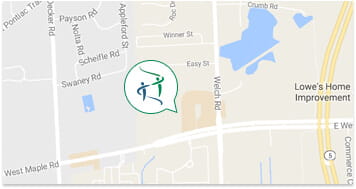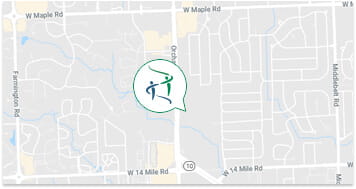
Anxiety
Anxiety can be a very painful and uncomfortable diagnosis to live with, coming in many forms, all of which display discomfort in some way.
Some people experience it as worrying constantly about specific topics or a more broad range of subjects. Some people experience anxiety as physical symptoms in which they may report having various forms of stomach pain or headaches, which have been undiagnosed by a doctor.
Some individuals avoid going places or doing things because it creates such as uncomfortable feeling for them. Some people report feeling increasingly irritable and agitated. Some individuals can't get a thought out of their head or need to engage in ritualistic or repetitive behaviors. Some people experience physical symptoms that make them feel as if they can't breathe or are having a heart attack.
The list can go on and on. Anxiety takes many forms. All of which are unpleasant for the person experiencing them. All of our treatment providers specialize in the treatment of anxiety and have a variety of treatment plans available to decrease the symptoms that are presented by the client. As explained, there are several forms of anxiety, which will be described below.

Generalized Anxiety Disorder (GAD)
This disorder basically encompasses all symptoms of anxiety in a more general form. A person with this diagnosis is probably experiencing several forms of anxiety that don't meet the criteria for a more specific diagnosis. This person may be worrying a lot, sleeping poorly, feeling irritable, experiencing stomach discomfort or headaches, may be having panic attacks or anxiety attacks, avoiding activities or people, or engaging in mild obsessions or compulsive behaviors. Individuals presenting with these symptoms often report feeling uncomfortable and are looking for strategies to decrease their anxiety.

Panic Disorder and Agoraphobia
Panic attacks are extremely scary for the person experiencing them and the people around them. They tend to come about without any reason and become very intense very quickly. People often describe them as "feeling as if I was going to die." Individuals feel as if they can't breathe, they may experience chest tightness or pain, their limbs may feel numb, they may feel as though they can't swallow or they may feel as if they are going to vomit. Many individuals experiencing symptoms will end up at the emergency room only to be told that they are having a panic attack.
Unfortunately, if you have had one, others will likely follow. Sometimes they occur so frequently that people become afraid of them. These individuals will begin isolating and refusing to leave their homes for fear that an attack will occur. People will often stop participating in activities and begin avoiding places where attacks have happened. Panic attacks are most often harmless, but extremely uncomfortable and create unhealthy patterns of avoidance.

Obsessive Compulsive Disorder (OCD) and Trichotillomania
Most people have heard the term OCD or the phrase "I have OCD." Many individuals engage in single behaviors that are representative of OCD-type behaviors such as being very organized or checking things multiple times or they may have a quirky behavior in which they engage.
However, those individuals who have been diagnosed with OCD engage in behaviors that interfere with their ability to function appropriately in everyday life. Their behaviors or thoughts become overwhelming and it impacts their ability to engage in self-care, socialize with peers, go to work or school, complete chores, go to appointments, sleep, eat, and all other aspects that people engage in on a daily basis. It becomes extremely painful for the person experiencing the symptoms and becomes very isolating.
Trichotillomania is a form of OCD in which the individual engages in hair pulling activity from various parts of the body. It becomes very intrusive in everyday life and the anxiety becomes very overwhelming unless the person is engaging in the hair pulling activity.

Phobias
Most people are afraid of something at some time in their life. However, Phobias are extreme fears that are often irrational in nature and have a significant impact on the person who experiences them. If presented with the fear, an individual will likely have an extreme irrational reaction and subsequently, make any attempt to avoid the identified fear. Phobias can create isolating behaviors and develop unhealthy patterns of avoidance.

Post Traumatic Stress Disorder (PTSD) and Acute Stress Disorder
Unfortunately, sometimes people will endure a traumatic experience in their lifetime. It could be experiencing some form of abuse, witnessing a distressing event, living through a natural disaster, participating in a war, or experiencing a life-threatening event. Our brains do not naturally know how to cope with such experiences and as a result individuals may develop unhealthy symptoms if not treated.
These symptoms might include increased anxiety, irritability, nightmares, flashbacks of the traumatic experience, avoidance of certain people or environments that remind the individual of the trauma, and fight or flight responses that are irrational to the current situation. Our therapists here at Viewpoint Psychology & Wellness are ready to help you work through your trauma at your own pace.



